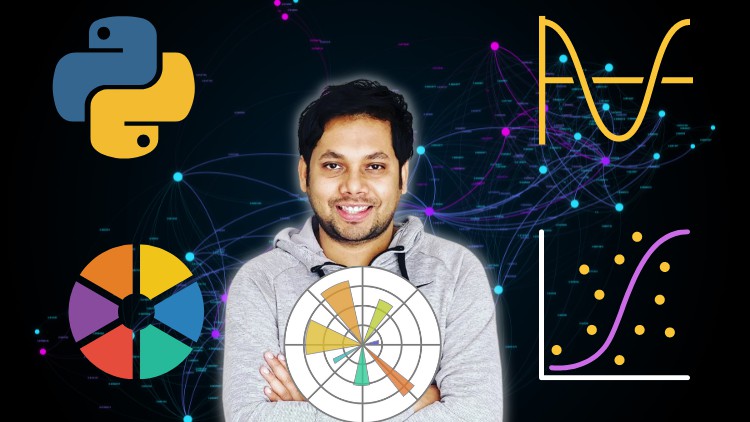
Data visualization using Python | Create high quality visually appealing plots | Import variety of data formats
What you will learn
You will learn how to use Python to create stunning charts and data visualizations
Create complex data visualizations using Matplotlib
Create custom Matplotlib settings for journals, and conference plots
Student, researchers, data scientist and teachers who wants to elevate their figures to the next level
Explore dimensionality of the data, data interpretation
Import multiple datasets and plot
Description
Welcome to the finest data visualization or graph plotting course using Matplotlib on the web, in my viewpoint. The technical skills you learn in this course will help you advance in your career as a data scientist, researcher, or science student. This course is designed for students of science & engineering interested in producing top-notch scientific graphics as well as researchers and data scientists. First, I’ll give you a brief overview of Python. Along with that, I’ll cover the essential packages, such as Numpy, Pandas, and Matplotlib, that we’ll use often in this course. Before getting into more complex preparation for posters and scientific publications, I’ll start with the fundamentals. At the completion of this course, You will be able to plot any form of data from different varieties of data files.
In this course, you will learn:
- Working with JupyterLab
- Create complex data visualizations using Matplotlib
- Import and extract data from CSV, TXT, MAT, and H5 files
- Import multiple datasets and plot
- Create custom Matplotlib settings for journals, and conference plots
- 2D colormap plots and customization
- 3D plots and customization
What distinguish this course from the hundreds of others available online?
While most online courses follow simply descriptive material and take endless hours, this short course highlights the necessity of visually appealing plots as a need for any kind of scientific or professional presentation, as well as the integration of visualizations from various datasets. Instead of spending endless hours on hypothetical data, this combines the ideas, tactics, and crucial settings.
Content